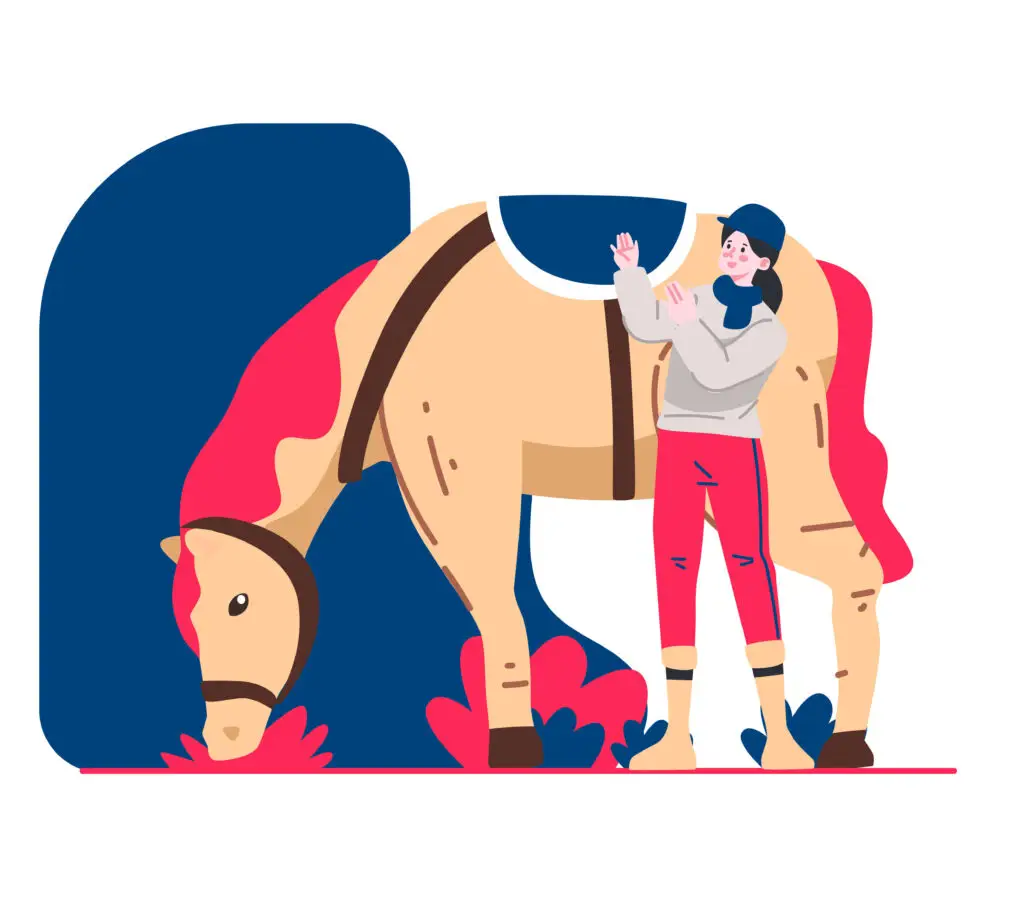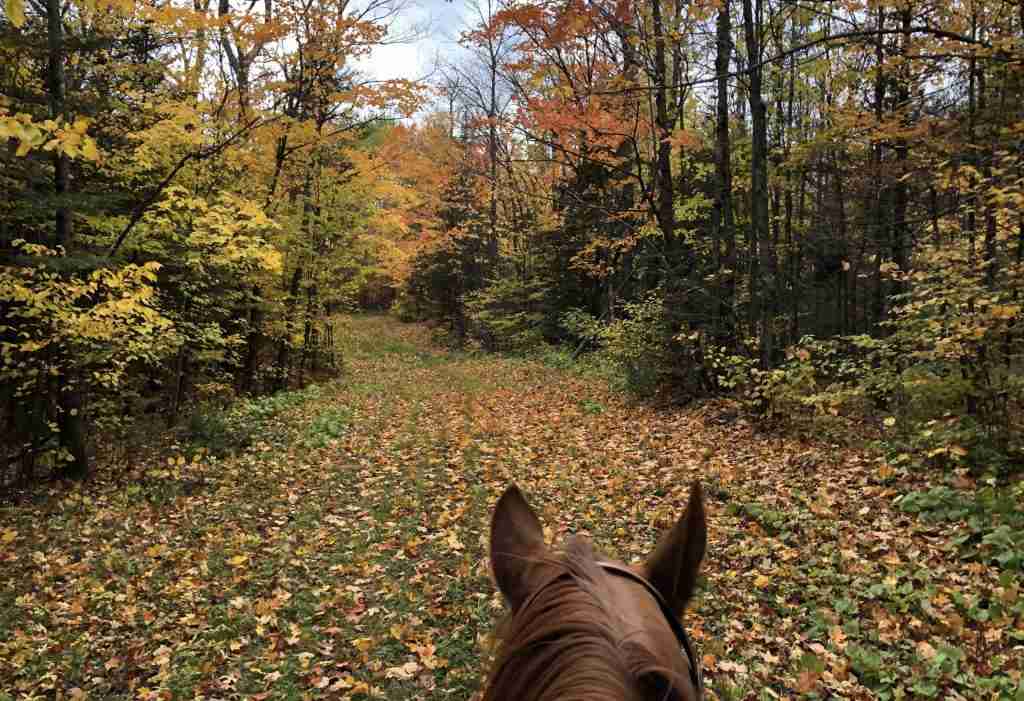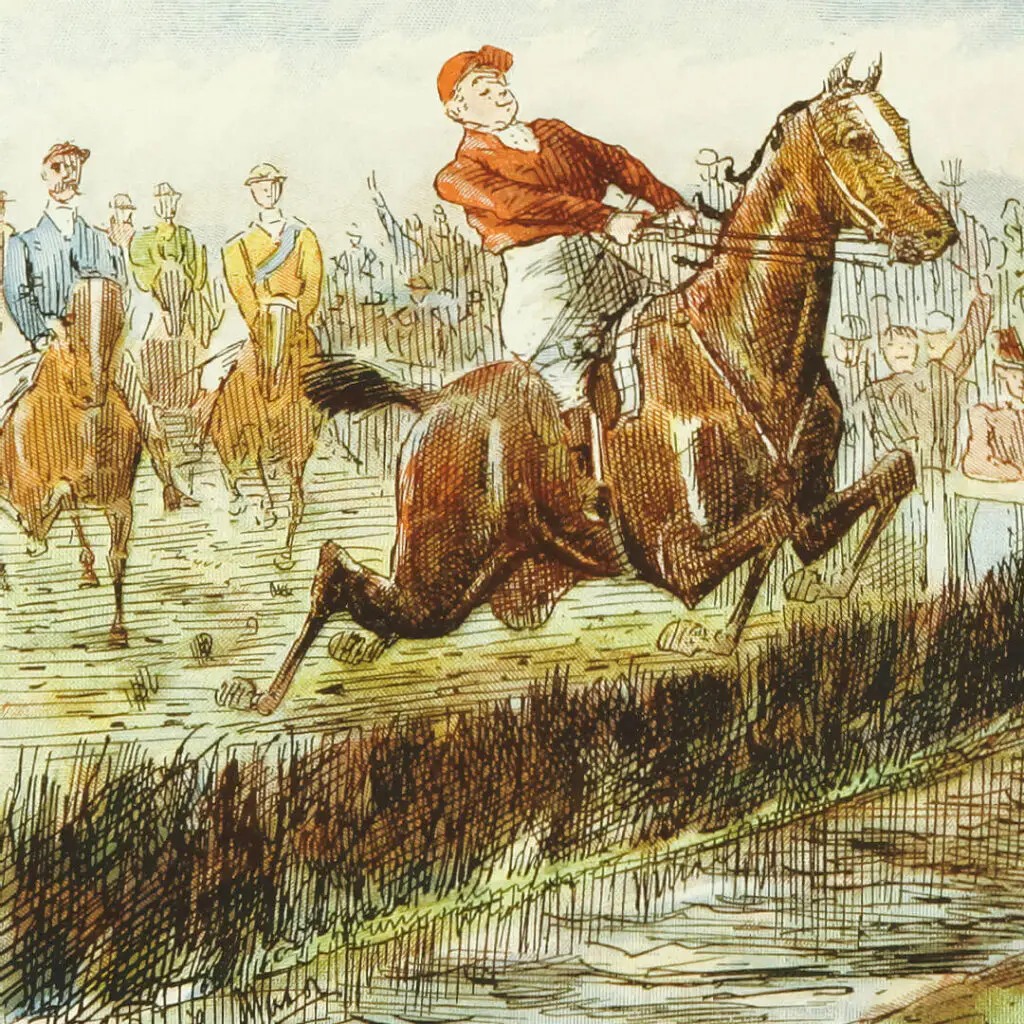
Healing For the Parts of You That Words Haven’t Reached
You’ve tried to do it the “right” way. You’ve sat in the office. Answered the questions. Dug through your past, talked through all of your childhood stuff even when you didn’t want to.
In fact, you’ve talked about the same stories so many times, they literally feel rehearsed.
You’re not afraid of therapy—you just haven’t ever really felt progress in it.
Two pinky promises for you:
And here’s why:
Equine-Assisted Psychotherapy (EAP) offers that. Not in a chair, not through a clipboard—but in the presence of horses, and at your own pace. This is therapy with fewer walls, fewer expectations, and more room to breathe.
Whether you’ve never tried therapy before, or you’ve tried everything and still feel stuck—EAP offers a new entry point. One that meets you in your body, your nervous system, and your truth.
At its core, Equine-Assisted Psychotherapy isn’t about horses—it’s about you. The horses we spend time with just happen to be the most honest, nonjudgmental mirrors you’ve ever met.
EAP is a trauma-informed, somatic, and relational form of therapy where you work with horses—not to ride or perform—but to build awareness, insight, and trust in yourself. Sessions are hands-on, experiential, and grounded in real-time emotional presence.
You’ll start on the ground, getting to know the horse, the environment, and yourself in a new way. That might look like grooming, leading a horse through obstacles, or standing side-by-side in stillness. Every moment is guided by your pace, your body’s cues, and the therapeutic relationship between you, your therapist, and the animal.
Each session is held at North Country Ride in Esko, MN, with oversight by an equine specialist and guided by a trained therapist. We begin with 4–7 groundwork-based sessions to establish safety, trust, and connection. From there, your therapy may evolve into deeper relational or somatic work depending on your goals and readiness.
There’s no “right way” to participate. No test to pass. No performance required.
We’re not here to teach you how to ride a horse. We’re here to help you slow down enough to notice what’s actually going on beneath the surface—without pressure to explain it all out loud. To connect with parts of yourself that talking alone hasn’t been able to reach. To feel just a little more at home in your own skin, one step at a time.
And that—surprisingly often—starts in the quiet presence of a 1,200-pound animal who doesn’t need you to say a word to understand how you’re doing.
Horses mirror human emotions, helping clients gain insight into their own feelings and develop better emotional regulation.
Working with horses improves non-verbal communication and relational skills, translating to better interpersonal relationships.
The calming presence of horses supports trauma healing, helping clients build resilience and a stronger sense of self.
You’ve tried therapy before. Maybe more than once. You’ve talked about your anxiety, your past, the ways you shut down in relationships or freeze in new situations—but somehow, it still feels like nothing is shifting even with all of the effort you’ve put in.
Honestly, you know that you’re self-aware. You get it and probably already know the patterns that are unfolding both around you and within your life. But you’re still stuck. It’s like you know what’s occurring but you can’t seem to find the key to making it stop… or making your efforts to change things stick.
Or maybe you’re new to therapy, and you already know that sitting across from someone in a quiet office talking about your life just isn’t going to cut it.
Equine-Assisted Psychotherapy (EAP) is for folks who:
We work with adults and teens who are navigating:
You don’t have to have any experience with horses. You don’t even need to feel comfortable around them at first. What you do need is curiosity—and a willingness to try something different.
Let’s clear this up:
Equine-Assisted Psychotherapy isn’t just “horse time with a side of self-esteem.” And it’s definitely not about riding. (Although those two things are usually nice side dishes we get to experience while working with horses!)
At Northern Edge, equine therapy is a clinical, trauma-informed approach designed to help you connect with the parts of yourself that don’t always make it into the therapy room.
Working alongside a horse—with the support of your therapist—you start to notice things: how your body tenses, how quickly you step into people-pleasing, how conflict-avoidance crops up, how your nervous system reacts to subtle cues of connection or disconnection. The horse responds honestly, without judgment. And in that reflection, you see yourself more clearly.
This isn’t about controlling the horse or learning the skills to make them do what you want, when you want them to. It’s about building trust—at your pace. And through that process, learning how to trust yourself.
Sessions are guided, safe, and always consent-based. We don’t push, force, or rush. Just like in your healing process, we let the relationship lead.
Let’s be honest—if you’ve only done therapy on a couch (or a screen), stepping into a barn might feel… unfamiliar. Maybe even a little intimidating. That’s okay. You don’t have to know anything about horses. You don’t have to love the smell of hay or have your “farm vibes” figured out. We just need you to be open to the experiment of trying something new.
Most clients begin with groundwork and spending time learning how horses communicate, and how to connect with them in a way that feels good. Sessions take place at North Country Ride in Esko, MN, and typically start with meeting the horses in their pasture. Together with your therapist (and sometimes with the support of a trained equine specialist), you’ll learn about horse behavior, observe body language, and start to interact from a place of consent and attunement.
You might:
It’s not performative, there’s no evaluation you’re going to go through at the end of the session. Your time here is an invitation to notice what’s coming up—emotionally, physically, relationally—and begin to work with it, with a horse as your co-regulator and a therapist as your guide.
You might notice your anxiety easing… not because you “talked it out,” but because something shifted in your body while learning to lead a 1,200-pound animal around. You might feel more grounded, more aware of your boundaries, or even more curious about what’s really going on beneath your patterns.
And here’s the thing:
Sometimes the healing happens in the moment.
Sometimes it happens on the car ride home.
And sometimes it clicks later—during your follow-up session, when you’re piecing it all together with your therapist.
If traditional talk therapy hasn’t felt like the right fit—you’re not alone.
We often hear from people who say things like:
“I’ve tried talk therapy before, but I couldn’t connect with the therapist.”
“I shut down when I try to talk about things—especially the hard stuff.”
“I want help, but I don’t want to sit in a chair and rehash everything over and over again.”
Equine-Assisted Psychotherapy (EAP) is for folks who want to heal, but need a different way in.
No pressure to explain yourself perfectly. No need to find the right words. Just real-time connection, at your pace, in a supportive space that doesn’t feel clinical.
We work with:
Many of our clients feel burned out, unseen, or like they’re holding it all together with duct tape and deep breaths. They might not even realize how disconnected they’ve become… until something finally shifts in a session with a horse. It’s often the first time they’ve felt safe enough to let their guard down in a hot minute.
You don’t need horse experience. You don’t need to be “ready” in any particular way.
You just need to be curious enough to show up—and we’ll meet you there.

Equine-Assisted Psychotherapy helps in ways that traditional therapy sometimes can’t. Why? Because horses respond to who you are—not who you’re pretending to be. They don’t care about your résumé or your coping skills. They sense your nervous system, your energy, your intention.
Which means… you can’t outsmart your way through this. You don’t need to. You just get to show up.
Here’s how healing can look in the barn:
You’ll get out of your head and into your body.
If you’ve spent years intellectualizing your pain or trying to “logic” your way through healing, EAP offers something new. Through gentle, hands-on interaction with horses, you start noticing physical cues and emotional patterns you didn’t even realize were running the show.
You’ll experience regulation in real time.
Horses are master co-regulators. Their nervous systems are constantly scanning for safety—and when they feel it, they offer it back. When you connect with a horse while grounded and present, you’re practicing emotional regulation without needing to talk about your trauma.
You’ll get honest, nonjudgmental feedback.
Horses don’t lie, and they don’t play social games. They respond to authenticity. That means when you set a boundary, show up unsure, or begin to open up, they mirror that back. These interactions can illuminate old relational patterns or emotional defenses you’ve carried for years.
You don’t need to talk it out to work it out.
For some, the hardest part of therapy is saying it all out loud. In EAP, insight often comes through interaction, reflection, and quiet moments—not long conversations. You might find that what was impossible to name in an office comes rushing to the surface in the barn.
This is gentle, embodied, relational work that allows the therapeutic process to unfold naturally. Whether it’s anxiety, trauma, disconnection, or something you can’t quite name yet—EAP creates a space where healing can finally begin to feel possible.

There’s a reason people say things like, “I trust animals more than people.”And to be honest, we get it.
Horses aren’t here to fix you. They’re not here to judge you. But they will respond to you—authentically, in real time, based on how you show up. That’s what makes equine-assisted psychotherapy so powerful. It’s about being in relationship—with a nonverbal, attuned, incredibly perceptive being who reacts to subtle shifts in your energy, body, and nervous system.
Horses notice everything. They feel it when you’re masking. They mirror your hesitations and emotional tension. They don’t care what you say—they respond to what’s true.
For people who’ve spent years performing, accommodating, or stuffing their feelings down to keep the peace, this kind of feedback can be life-changing. Not because it’s blunt or harsh—but because it’s honest. And safe. And free of the social static that makes human relationships feel so confusing sometimes.
In a lot of ways, horses invite your whole self into the arena. Not just the part of you that can explain things clearly. Not just the part that’s been to therapy before. But the parts that are unsure. Tense. Tender.
This is the kind of therapy that doesn’t always require words—especially helpful if words have failed you before. And when you’re able to show up fully, without performing, defending, or people-pleasing…Something in your nervous system exhales.
That’s the real work here.
And that’s why horses.
Equine Assisted Therapy
Nope. You don’t need to be a “horse person” to benefit from EAP. In fact, most of our clients have little to no experience around horses. You’ll be guided every step of the way, starting with meeting the horses in the pasture and learning basic interactions like grooming and leading. This isn’t about horsemanship—it’s about healing.
EAP offers a more embodied, experiential approach than traditional talk therapy. While you’ll still be working with a trained therapist, much of the insight comes from interacting with the horses—not just talking about your problems. It’s a hands-on, relational process that helps bypass mental blocks and access deeper emotional truths. For people who struggle with verbal expression or feel stuck in their heads, this approach can open entirely new doors.
We specialize in working with clients navigating anxiety (including social anxiety and trauma-related anxiety), low self-worth, chronic stress, CPTSD, and relational trauma. Equine therapy can also help with boundary issues, self-trust, and emotional regulation. If traditional therapy hasn’t quite clicked for you, this might be the space that finally does.
That’s completely okay—and actually pretty common. Feeling uncertain around large animals is a valid response, and we never push clients to do anything that feels unsafe or overwhelming. Part of the process is learning to build trust, move at your pace, and tune into your body’s cues. That nervousness? It often becomes one of the most powerful doorways into healing.
Sessions are held at North Country Ride in Esko, MN—a quiet, natural space where the horses live and thrive. This is a real barn setting, so expect fresh air, hay, and a little dirt. You’ll want to dress for the weather and wear closed-toe shoes. We always start on the ground (no riding involved), and everything is guided by your comfort and readiness. It’s not clinical. It’s real, relational, and deeply grounded in presence.
Northern Edge Counseling
Mindful Immunity
with Neil
A Mind-Body Therapy Circle for Autoimmune Healing